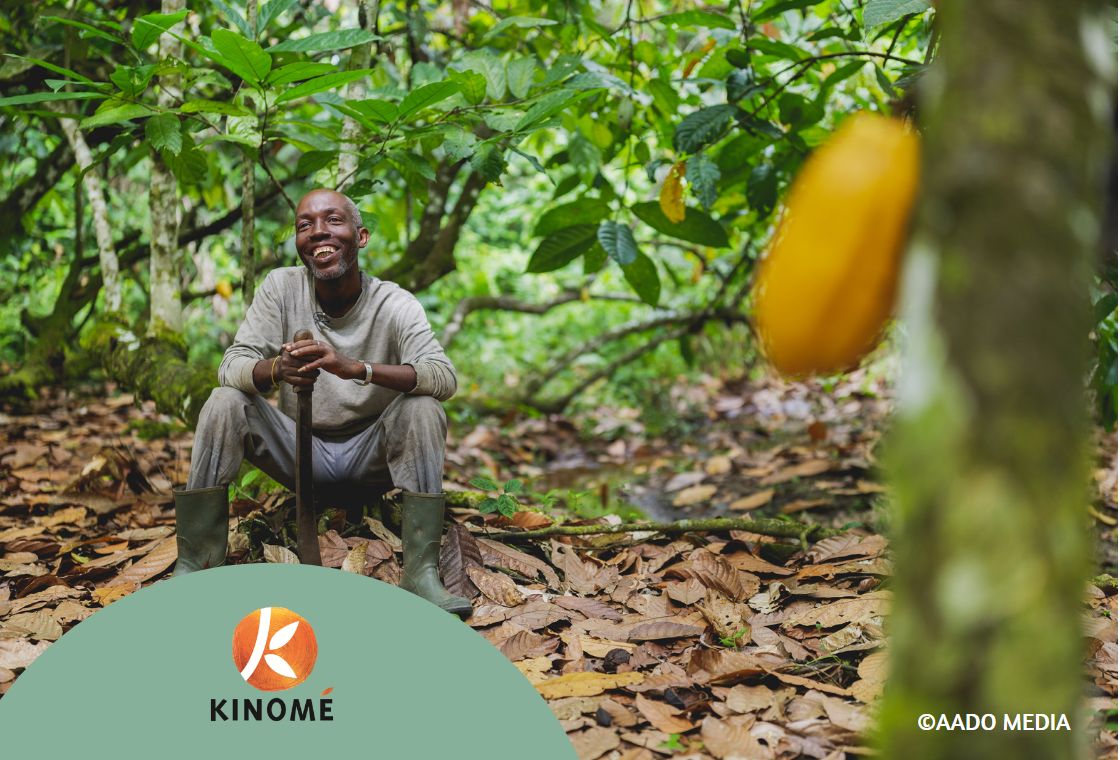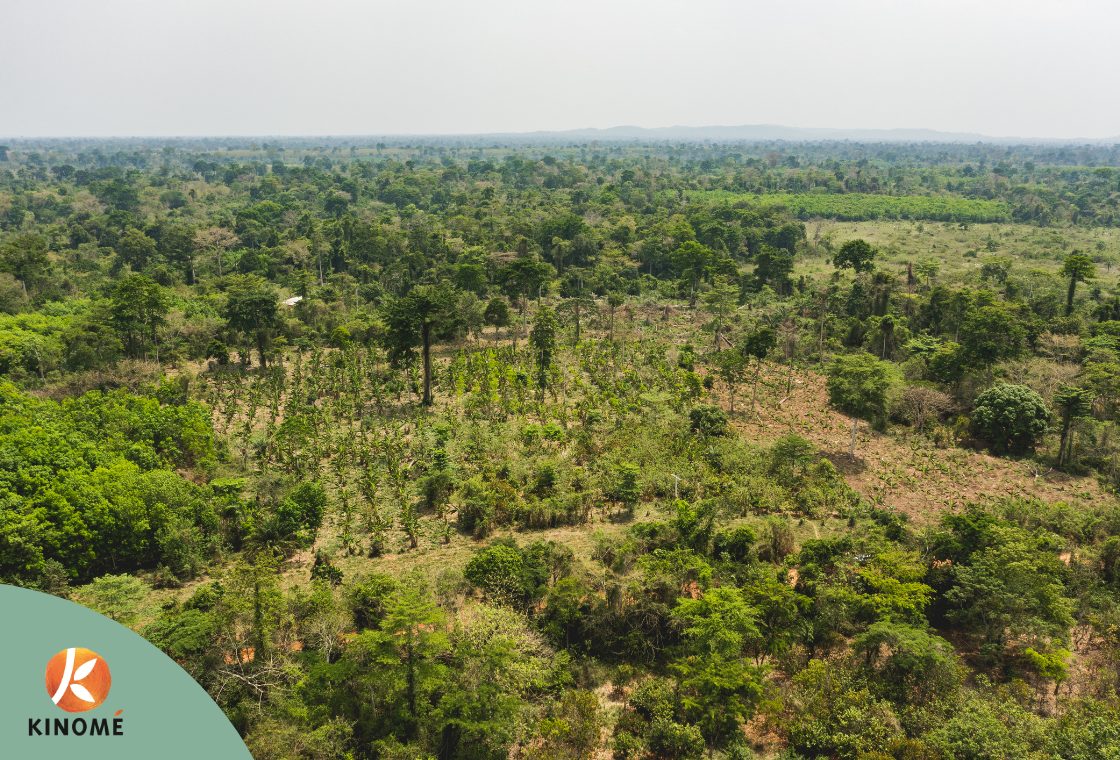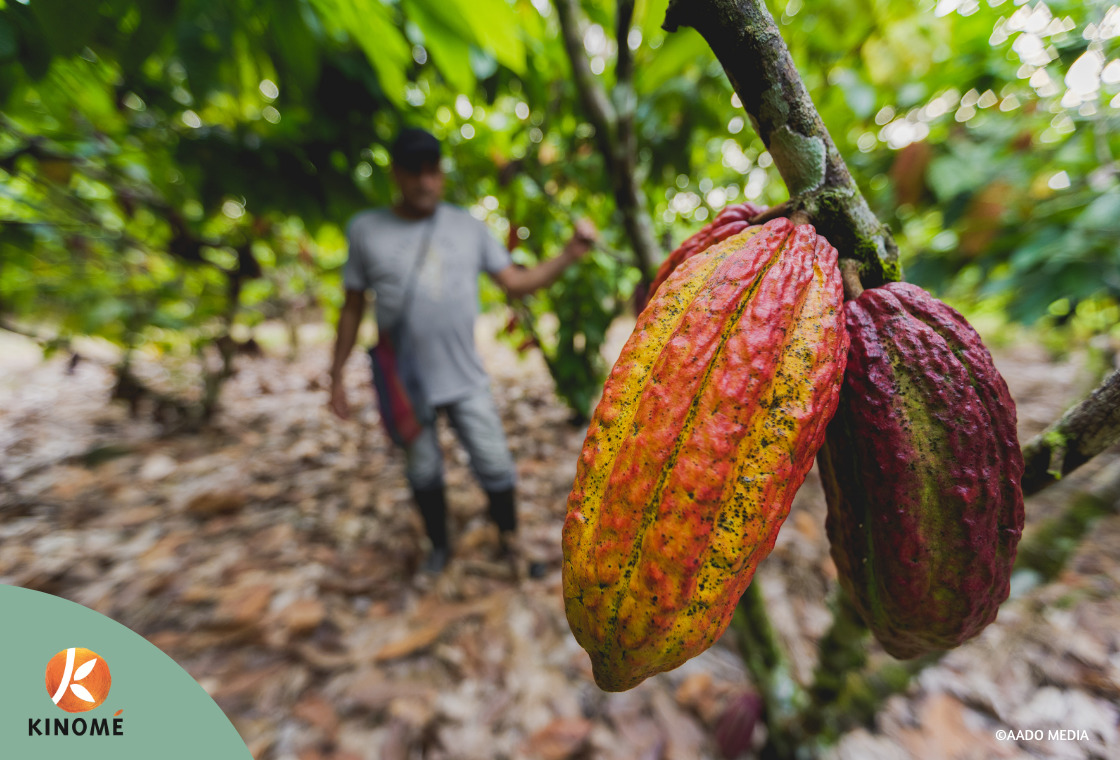How does Kinomé train farmers in Togo and Cameroon in the climate resilience of their crops?
As part of the “Territorial and agricultural development in Togo and Cameroon: a sustainable and integrated approach, climate change mitigation and adaptation” project of the French decentralized cooperation program “Clé en main”, Kinomé contributes to the capacity building of one commune in Cameroon and two communes in Togo on the topic of climate change vulnerability of their priority crops.
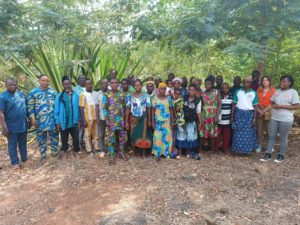
The project, led by YCID (Yvelines Coopération Internationale et Développement) in partnership with the Yvelines department and the local authorities of Jouy en Josas and Maule, aims to enable local economic development, based on a sustainable approach, by strengthening the agricultural sectors of Coffee for Foumban (Cameroon), Cacao-Café for Blitta (Togo) and Ginger for Kara (Togo), identified as priorities by each of the territories. The project aims mainly at increasing farmers’ incomes by improving yields and their ability to adapt to climatic change.
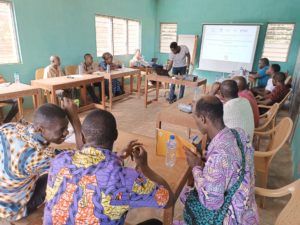
Kinomé has been contracted to carry out environmental vulnerability studies and climate resilience training for producers in Blitta, Kara, and Foumban.
The vulnerability study, based on a series of community meetings, characterized the agricultural systems and land and, provided a SWOT (Strengths, Weaknesses, Opportunities, and Threats) analysis of the targeted crops’ resilience, to identify and prioritize actions capable of optimizing the production.
Following this, a training program, based on an assessment of knowledge and capacity-building needs, was drawn up to optimize growers’ cultivation practices to adapt to climate risks and improve yields. The training courses provided an opportunity to exchange views with technicians and farmers on several topics, including leverages for sector resilience, wildfire management strategies, water stress management, agroforestry best practices, setting up a plot monitoring tool, and drafting agricultural specifications.
“We would like to sincerely thank you on behalf of the Kozah Prefectural Directorate of Agriculture, Livestock and Rural Development. We are very happy to take part in this training course, which has also opened our eyes to several dimensions“, Kodjo ATAREMI, Representative of the Kozah Prefectural Director of Agriculture, Livestock and Rural Development.
This mission was carried out jointly by three Kinomé’s experts: Dr Elikplim Komla ABOTSI (Expert in climate change adaptation), Atsu K. Dogbeda HLOVOR (Expert in ecosystem planning and management) and Camille SACHOT (Environmental economist).
“I feel satisfied to have contributed to the agricultural sector, in particular the coffee and cocoa sector in Blitta 3 and the ginger sector in Kozah, through these two weeks of training. I had the pleasure of supporting agricultural players in acquiring new knowledge and improving their yields in the light of the effects of climate change. I also contributed to boosting their confidence and their ability to adapt to climatic hazards. I have worked to promote sustainable, social and solidarity-based agriculture, which is essential for the future of our planet. I would like to thank all those involved for their commitment and dedication to this worthy cause“, Atsu K. Dogbeda HLOVOR, Expert in ecosystem planning and management at Kinomé

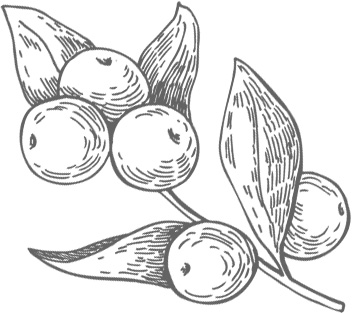

#agroforestry #impact #study #investment These articles may be of interest to you Context and issues 1.2.Tree Finance (now RRG Nature-Based...
With the goal of transitioning to a sustainable and inclusive international food system, regenerative agriculture emerges as a powerful force...
#cocoaculture Content Environmental and social issues in the cocoa sector Sustainable cocoa Cocoa varieties Study of PAPFor and WABILED projects...


